Overcoming a Fear of Failure: Growth Mindset in Action
Just recently, I talked about self-love, self-worth, and avoiding self-doubt. But today, I wanted to talk about failure, specifically a fear of failure. This blog post involves a book study on Mindsets in the Classroom by Mary Cay Ricci. Just so you know, I am an Amazon Associate, and the link is an affiliate link, so I earn a small commission on qualifying purchases.
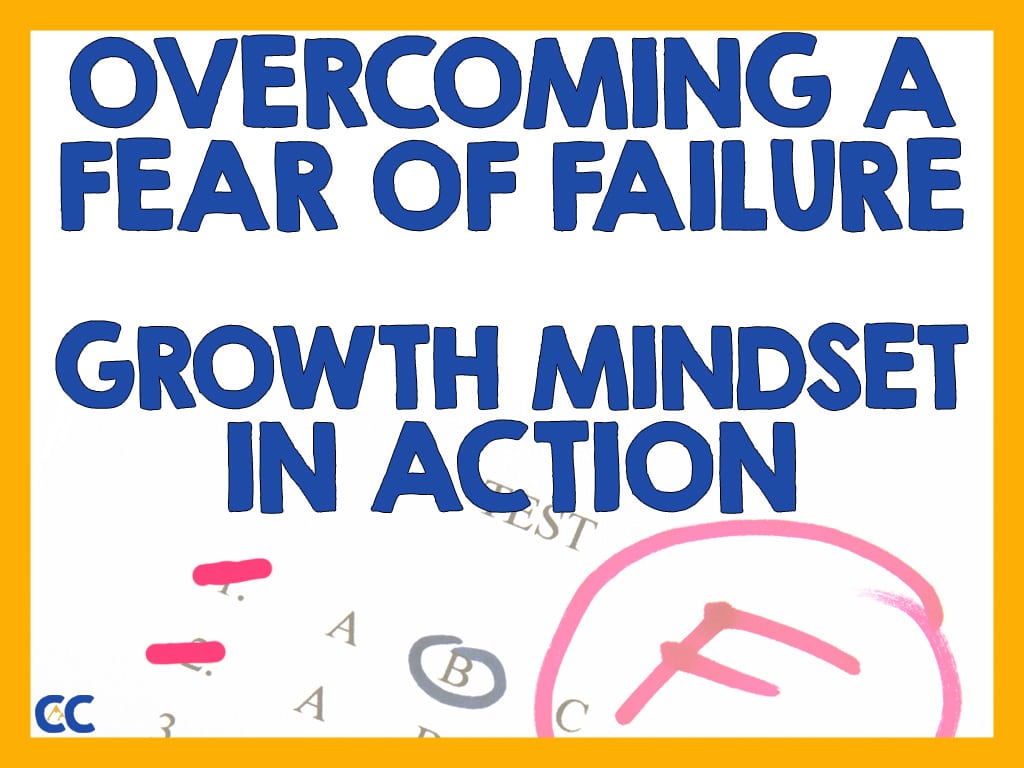
Fear of Failure
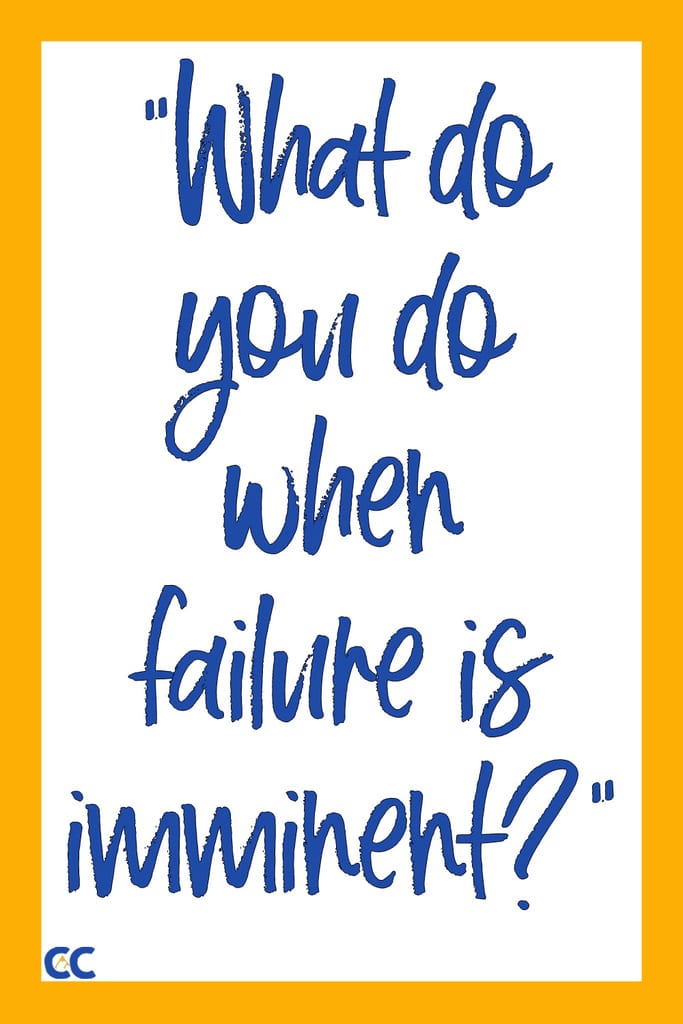
How do you handle failure?
What do you do when failure is possible or may even be imminent?
In my deepest honesty, I avoid failure at all costs. I am a perfectionist and failure terrifies me. In the past, I have been known to shrink away from responsibility or even avoid an activity altogether if I know I won’t be successful. In the book, Ricci says, “…failure can be a reward, for it is through failure that we can learn the most.” This has not been something I have been able to accept easily. As I grow, age, learn, and mature, however, I am coming to value this position more and more.
This is the difference between having a fixed or growth mindset. Students with a growth mindset try to learn from their mistakes and approach new tasks with effort. Students with a fixed mindset often give up before even starting. They may things such as, “I’m dumb.” “I’ll never get this.” “I stink at “x”.” These kids have submitted to failure and defeat before it has even reared its ugly head.
What is needed, is for educators to develop environments where failure is accepted and even celebrated. Thus students can learn how to reflect on their learning and redirect themselves in new ways. Take for instance this great scene from Meet the Robinsons.
Lewis is celebrated by his entire family when his invention fails, and he is encouraged to keep moving forward. If we don’t keep moving forward and learning from our mistakes, we cannot grow and become better.
Finding Your Motivation
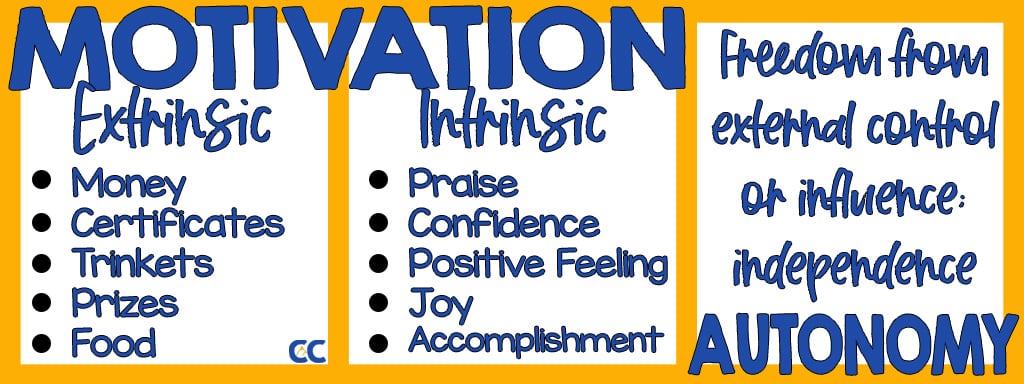
Hand in hand with a discussion of a fear of failure is one on motivation and effort. It is an examination of these attributes that were a precursor to that of a growth mindset. The book reminds us of that study, and that effort and success are usually brought about by internalization of actions and beliefs, while failure is attributed to skill difficulty, and sheer luck.
To help bring about that internalization of actions and beliefs, students must be trained to accept intrinsic rather than extrinsic rewards. Praise and positive feelings about effort and persistence do much more for the development of the child than money, certificates, trinkets, or prizes ever could. Giving students autonomy is another catalyst in a growth mindset as well.
Overall, we must change how we look at failure. We need to teach students to see it as feedback and data, not as a judgment on their person. We need to allow kids to fail so they can learn how to deal with it, make adjustments, and move on. Failure can build resiliency, but only if we look at it as a means to a new end, and not as the end.
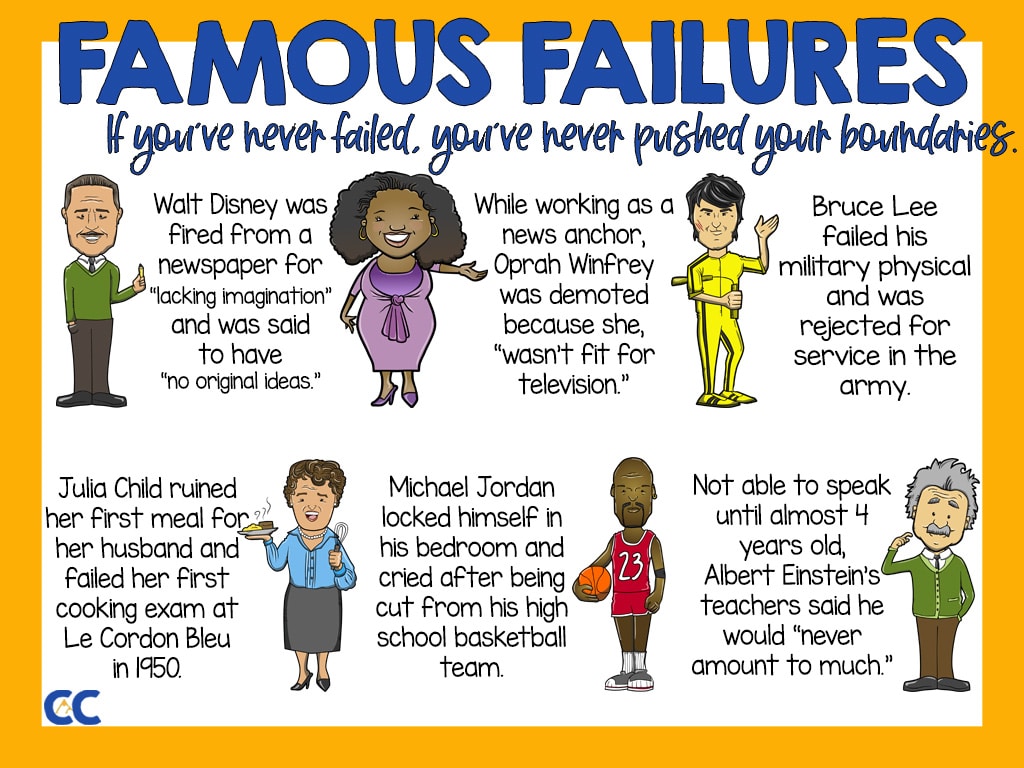
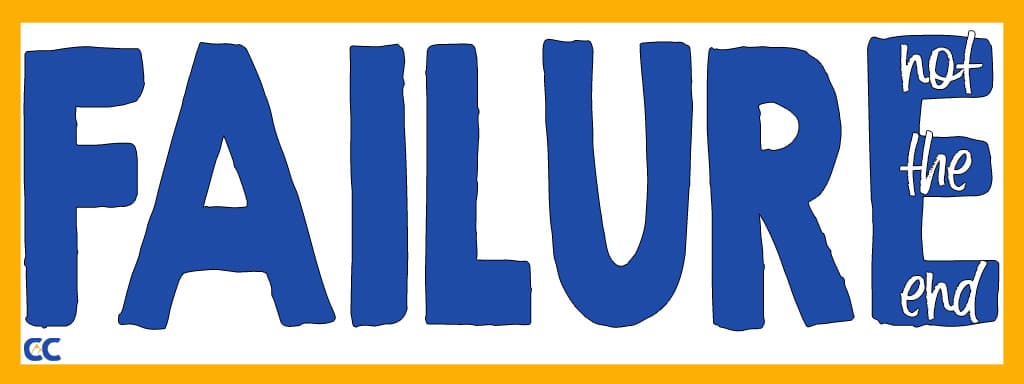
How do you handle failure? Do you have an example of a famous failure or a failure of your own that helped you grow into success? Let me know in the comments.
This is the 5th piece of a terrific book study on Mindsets in the Classroom by Mary Cay Ricci.
The other four pieces to this book study include:
Mindsets in Your Classroom by Math Giraffe
Building a Growth Mindset in Schools by Middle School Math Moments
Mindsets in the Classroom: Ch. 3 Differentiation by Leah Cleary
The Importance of Critical Thinking in a Growth Mindset Class Culture by History Gal

